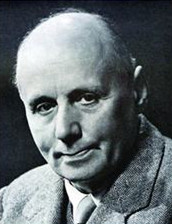UWC Student Speaking at Youth Dialogue hosted by UNICEF China
Issue date:2020-08-17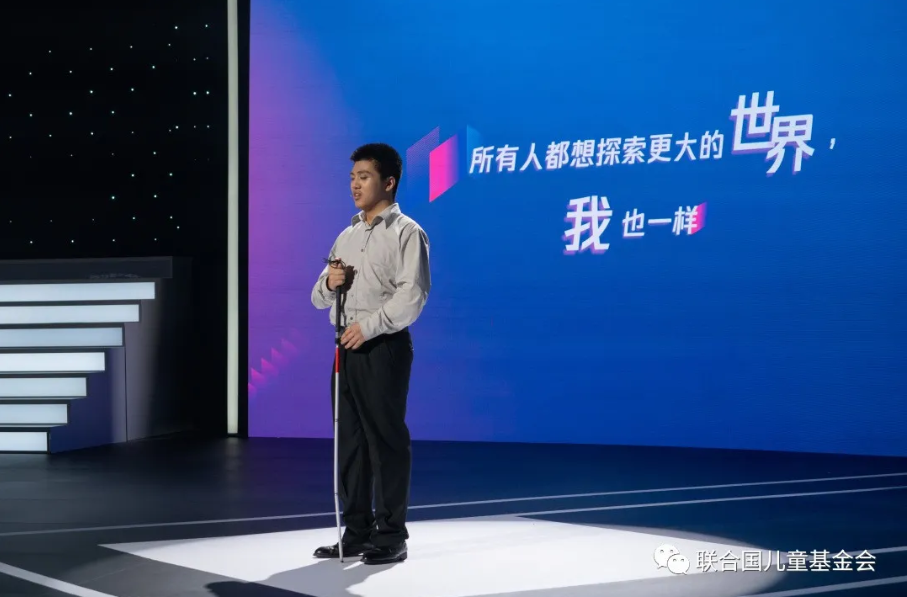
Zhao Chen, student of UWC Changshu China, speaking at the 2020 International Youth Day Dialogue, hosted by the UN in China, Xinhua News Agency and Tencent
At the entrance to a mall in downtown Beijing, shoppers take out their smartphones and scan a QR code to verify whether they pose a risk of carrying COVID-19. This provides them with the ‘green code’ required to access public spaces and the process doesn’t take long. Everyone quickly moves past the checkpoint - except for 19-year-old Zhao Chen.
Holding his phone near his ear, Zhao Chen rapidly taps on the screen while a robotic voice reads out fast-paced instructions. As a person with impaired vision, he relies on a screen reader to turn visual representations on computers and smartphones into audio. Sometimes this works; sometimes it doesn’t. After several failed attempts in the scorching sun, Zhao Chen gives up and hands his phone to one of his companions, who helps him get the green code.
This is just one of the many frustrations that he and 17 million people with visual impairment in China experience daily in both the real world and the virtual one.
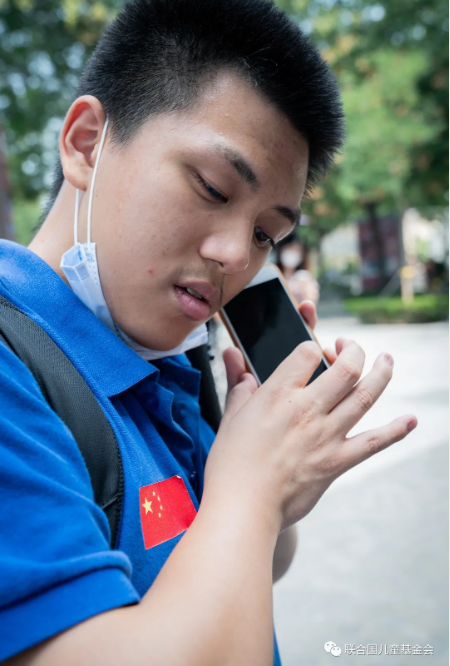
UNICEF/China/2020/Cong Yan
Zhao Chen uses the accessibility feature on his cell phone to read what's on the screen in Beijing, China, on 20 July, 2020.
Zhao Chen gradually lost his eyesight because of congenital myopia and complications surrounding the condition. At the age of 10 he could barely see. At primary and secondary school, he was marginalized by his peers, and teachers prevented him from joining physical activities for fear of injury. “Back then, I also had issues with self-confidence. Because of the dwindling eyesight, I started questioning my abilities,” said Zhao Chen.
Support at home and help from school counselors helped Zhao Chen. He also regained confidence through his hobbies. By taking part in his school’s choir, its radio station and a literature group, he made friends and found his strength. But the stigma attached to disability is still entrenched, and stereotypes are persistent. Assumptions about what people with disabilities can and cannot do lead not only to misconceptions among the public, but also among people with disabilities themselves.
“Stereotypes against the visually impaired, and the education they receive, lead them to put constraints on themselves. Sometimes they think that they can’t do much,” according to Zhao Chen. “In fact, with some training and assistive technologies, there are lots of things that we can do just like others.”
New technologies have helped narrow the gap between Zhao Chen and his peers in access to information. Screen-reading applications mean that Zhao Chen can stay in regular schools, instead of going to a special school for the visually impaired. Navigation and e-commerce apps have also made his life much easier.
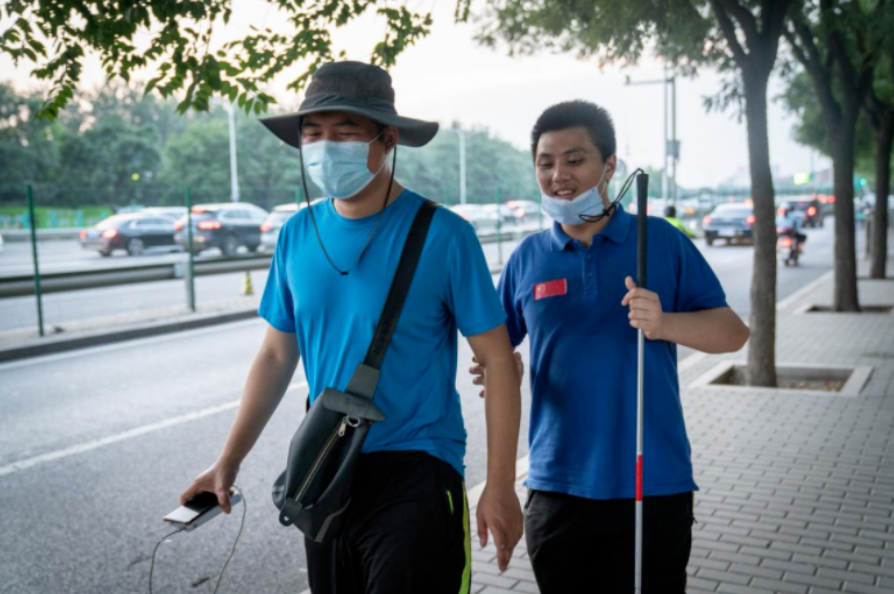
UNICEF/China/2020/Cong Yan
Zhao Chen walks with his friend Wang Qingyuan in Beijing, China, on 20 July, 2020.
“The internet opens a window for us to get to know all groups of society from different angles, and learn about the world. In the past, we had to rely on braille books and word of mouth to learn things, but they have their limitations. Now the internet has expanded both the breadth and depth of learning to an unprecedented level,” said Zhao Chen.
Despite the benefits of digital technologies, Zhao Chen still faces challenges - like the frustration around getting the green code for entering public spaces. CAPTCHA tests, which use images of text or other visual perception tasks to tell whether a user is human, often stop him from completing online registrations. Zhao Chen has to either ask for help from others or just give up.
These experiences prompted Zhao Chen to speak out about digital accessibility for people with disabilities. At an online youth dialogue jointly hosted by UNICEF China and Tencent in July called ‘Digital Youth: My Life, My Future’, Zhao Chen presented a proposal for eliminating the barriers to digital technology to his peers and industry experts. He also spoke at the 2020 International Youth Day Dialogue, jointly hosted by the United Nations in China, Xinhua News Agency and Tencent, about digital accessibility.
“A good design must respect all differences, be universal, and easy to use. We hope to be respected and have machines serve our needs, instead of being hijacked by machines. Universal design of digital products will benefit more people, and make the world a better place,” said Zhao Chen during his presentation. “With 5G technology and big data, I hope that one day anyone who has impaired mobility, speech or hearing can tell technological systems 'We are human not artificial intelligence' in the way she or he prefers.”
The thought-provoking presentation was well received, and Zhao Chen was awarded the title of Youth Advocate for Digital Rights, along with four other young people who participated in the dialogue. Lanky Zheng, who is in charge of Tencent’s protection system for children and adolescents, and general manager of the user platform department at Tencent Interactive Entertainment Group, says that the internet industry has been exploring technical solutions to address the challenges faced by people with disabilities and other marginalized groups, but more needs to be done.
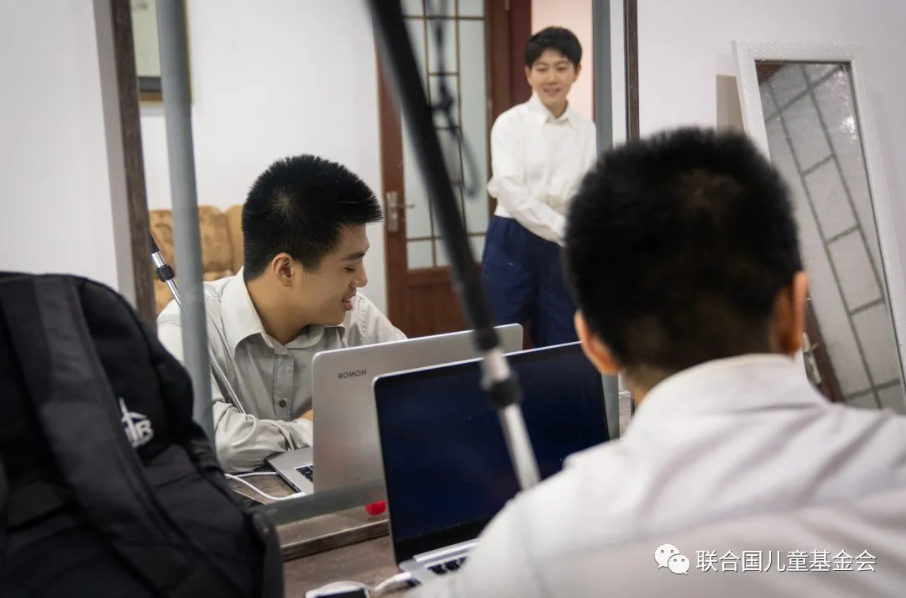
UNICEF/China/2020/Cong Yan
Zhao Chen chats with Song Xi, another speaker at 2020 International Youth Day Dialogue, in their shared dressing room, in Beijing, China, on 1 August, 2020.
“Technologies are rapidly transforming our lives for the better, but we need to think about whether everyone around us has got on board the fastmoving train and enjoyed the progress brought about by technologies. If not, we should stop and think about how everyone could enjoy the benefits,” said Zheng. “Since 2013, Tencent has been collaborating with the Accessibility Research Association and we have explored many options. There are lots of things we can do in this field. We'd like to see more companies shoulder social responsibilities, create social value and demonstrate compassion while they develop their business and products. We should develop technology for social good, so that everyone can enjoy the benefits of the internet.”
“People with disabilities should be able to benefit from digital technologies as much as anyone else,” said Dr. Douglas Noble, UNICEF’s Deputy Representative to China. “It’s not just about everyone having the same benefits from digital technology, there is a wider issue at stake to make sure that young people enjoy the same fundamental rights in society and that there are not significant differences across different groups. We need Government and the private sector to help address this gap.”
To Zhao Chen, digital accessibility is about more than making it easy to use technologies. He sees it as a stepping stone to achieving equitable rights for people with disabilities by bridging the yawning gap in how they, and people without disabilities, understand each other. And the sooner the better. “It’s been difficult to improve road and transportation accessibility, as the road system was in place long ago. Now digital technologies are taking off. I think it’s important to place digital accessibility on the agenda now, and that will provide impetus for an inclusive society in the future,” said Zhao.








